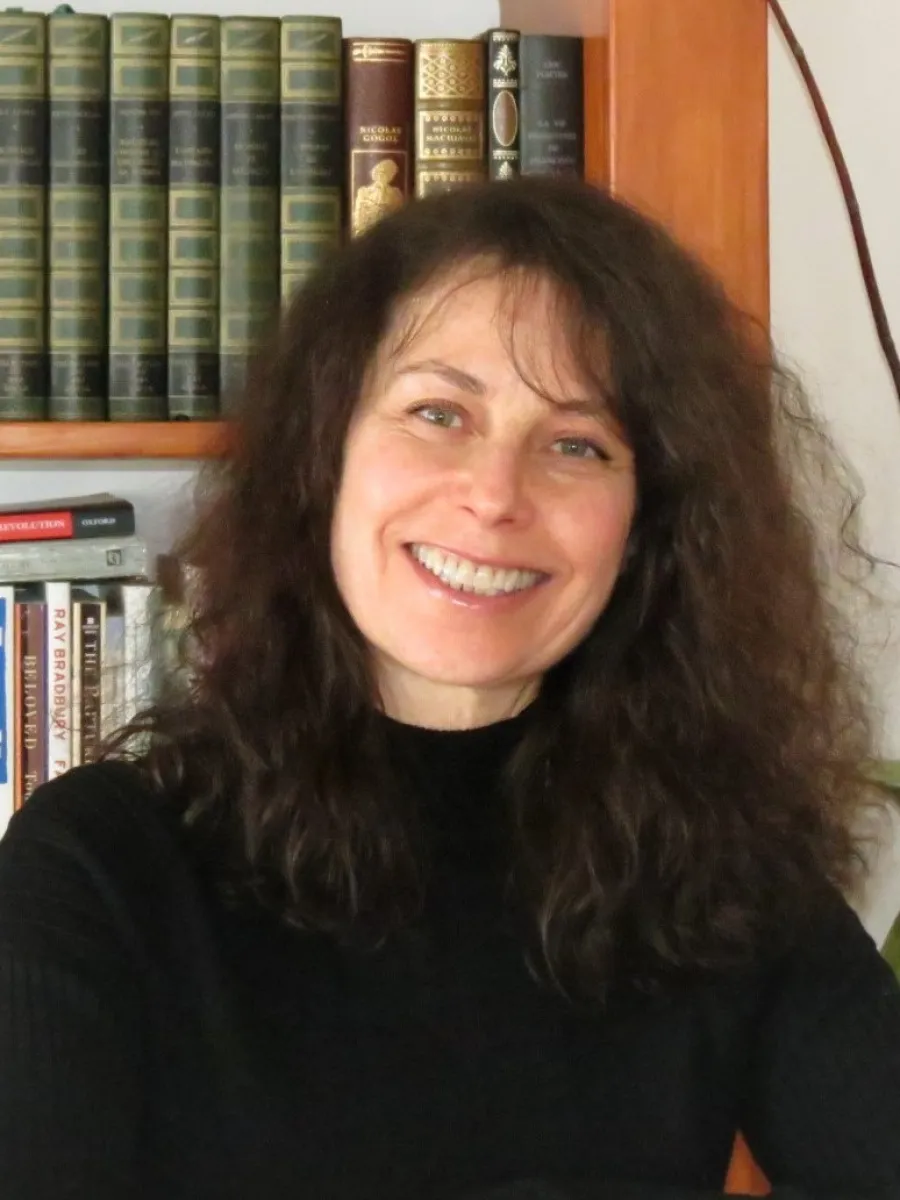Nelly G. Kupper
Professor, French and Russian
Degrees Held:
- B.F.A., Virginia Commonwealth University, Richmond, VA
- M.A., University of Tennessee-Knoxville
- Ph.D., University of Tennessee-Knoxville
Began teaching at NMU in 2000
More about Dr. Kupper:
Nelly G. Kupper is a generalist in French literature with a second specialty in Russian literature. Her research has involved examining literature in conjunction with other disciplines. In the area of literature and psychology, some of her work has been published in a collection on this theme entitled Perspectives on Creativity: Volume 2, (2011); in a critical journal from University of Paris VI-Sorbonne, Gradiva, revue européenne d'anthropologie littéraire (2006); in Symposium (2001); and two publications in Literature and Psychoanalysis (2002 and 2005). Some of her other research involved examining literature in combination with visual art, as with the paintings of Georges Seurat, presented at the 26th International Conference on Psychology and the Arts, at Tuscia University, in Viterbo, Italy (2009). Her most recent interests, however, focus on the intersection of neuroscience and fiction. This topic appears in her published article in Orbis Litterarum (2011), and is discussed more extensively in her recently published book, Gaze, Memory, and Gender in Narrative from Ancient to Modern, New York: Peter Lang Publishing, 2018.
Nelly G. Kupper was a Fulbright-Hays scholar at Moscow State University, Russia, Summer Program for Faculty of Russian, (2006). Her other interests include instruction with the use of Academic Service Learning. Her research in this area resulted in presentations at professional conferences such as at the American Association of Teachers of French (AATF), (2010, 2016, 2019), and at the conference of the American Creativity Association (ACA), (2012).

In 2013, NMU Professor of French Dr. Nell Kupper was awarded sabbatical leave to conduct research for a new book. Her research explores the intersection between literature and science, a topic of study on which Dr. Kupper has already presented and published, including her article entitled “Daughters Who Remember” published in the May 2011 issue of Orbis Litterarium. Her interest has ultimately lead her the University of Montpellier in southern France, where she has been diligently writing her book.
“My work is progressing surely,” Dr. Kupper commented. “There is a lot of reading and rereading and thinking and writing and then more of the same the next day. It is work, in every sense of the word.”
To gain access to the University of Montpellier library system and its collections, Dr. Kupper had to acquire the status of guest-researcher. She has since been investigating resources in both the Library of Arts and the Library of Sciences. “Both,” described Dr. Kupper, “have enormous collections of hard copies of professional journals and texts. It is very convenient here to have material in your hands right away.”
Dr. Kupper has already completed more than six chapters of her book. Some of the overarching topics in the work include fictional narrative, memory processing, focus in the neurosciences, and prototype characters. She has graciously provided an excerpt from her book, which will be submitted for future publication:
In Memory, History, and Forgetting, Paul Ricoeur, a revered contemporary French philosopher, offers a comprehensive study and analysis of the subject of memory in the philosophical and literary traditions. He characterizes the focus of his immense investigation thus: “the phenomena of memory [… is] closely connected to what we are” (Ricoeur, 24). The basis for human life is in memory since it is through the process of memory that human perception of self, of others, and of the world around them is formed. In terms of the self, Ricoeur posits as follows:
“Memory is of the past, and this past is that of my impressions, in this sense, this past is my past. Through this feature, memory assures the temporal continuity of the person and, by this means, assures that identity […], [a] continuity [that] allows me to move back without interruption from the living present to the most distant events of my childhood.” (96)
Memory allows the individual to not only grasp the notion of time, spanning as a continuum through the progressive moments of her past and into the present, but also to conceive of her individual existence in the world through a continued narrative from her past to her present. And since we speak of the world and of narrative, we must also see that recalling necessarily “enters into the region of language […] a kind of discourse that the subject engages in with herself. What is pronounced in this discourse occurs in the common language […], which […] is the language of others” (Ricoeur, 129). Each individual’s recollections render a personal narration, crafted from unique experiences. It is the language of the public sphere, nevertheless—with its rituals, social constructs, and symbols together forming the group’s discourse—that articulates the uniquely personal memories. The effortful process of self-constructed identity and the resulting individual narrative is inevitably limited, shaped, and dictated by the discourse of the collective. In the phenomenon of memory, therefore, in the process of generating a narration of personal history, there exist two separate issues that seem at times to blend together: the self and the other. On the one hand, recalling the past establishes the self as continuous, and solidifies individual identity, separate from others. On the other hand, the discourse of the individual narrative, through which personal identity is assured, is prescribed by others collectively. And here the process of the formation of individual memory insists on yet another measure factoring into the intricate and complicated binary relationship between the self and others.
Individual memory apprehends of itself through “a subtle analysis of the individual experience of belonging to a group, and through the instruction received from others” (120). In other words, the self, as it creates its personal narrative, its history, relies not only on the discourse from the other to articulate its memories, but also on the affirmation from the other to validate those memories. In order for one to have what one would call a memory, one needs others. Ricoeur argues therefore, that “when we no longer belong to the group in the memory of which a given recollection is preserved, our own memory is weakened for lack of external support” (121). That is to say that if the group that experienced the event with the individual is no longer present, or if the individual is somehow definitively separated from the group in which she lived a given past experience, the individual may have difficulty in remembering the experience or possibly even doubt the experience having taken place at all. The wide concept of memory—including the self-created identity, with its notion of time continuum, and individual identity in the context of the group—in a sense begs for an echo from the group. The echo reiterates, validates, and permits the memory. I would humbly add to Ricouer’s elegant argument of memory, in drawing attention to its integral element of forgetting. The echo from the group, therefore, which necessarily includes strategic remembering and forgetting, affirms the personal narrative, or what is in essence the existence of the person as an individual, as well as her narrative in the context of the collective. Without the echo, the validation from the other, did the individual truly live that past? Did she even exist? Through these notions, Ricoeur impresses the immense influence of the role of memory on human existence—its role in the formation of personal identity, separate from others, and, at the same time, its role in interconnecting individuals through collectively shared patterns and discourse of the group, and through validation of shared memories, and of course shared forgetfulness. All of the roles of memory necessarily lead the individual to recall, which is in itself creating a narrative. As the personal narrative, stretching across individual memory, establishes the very existence of the individual, so does myth and archetypal character, reaching across time, found collective memory, and thereby the continuity of human existence.
--
Dr. Kupper will return to NMU for the Fall 2014 semester.
